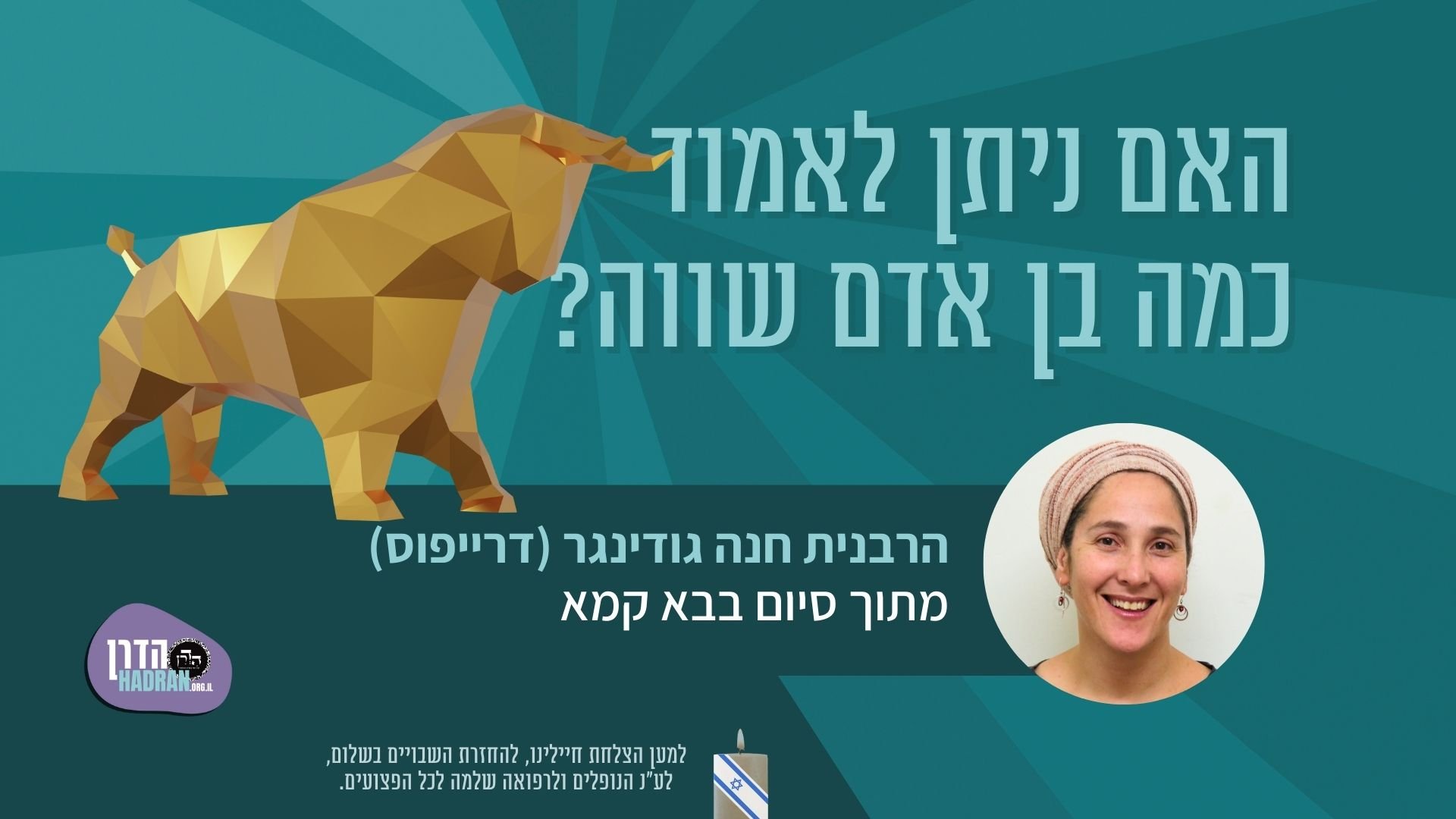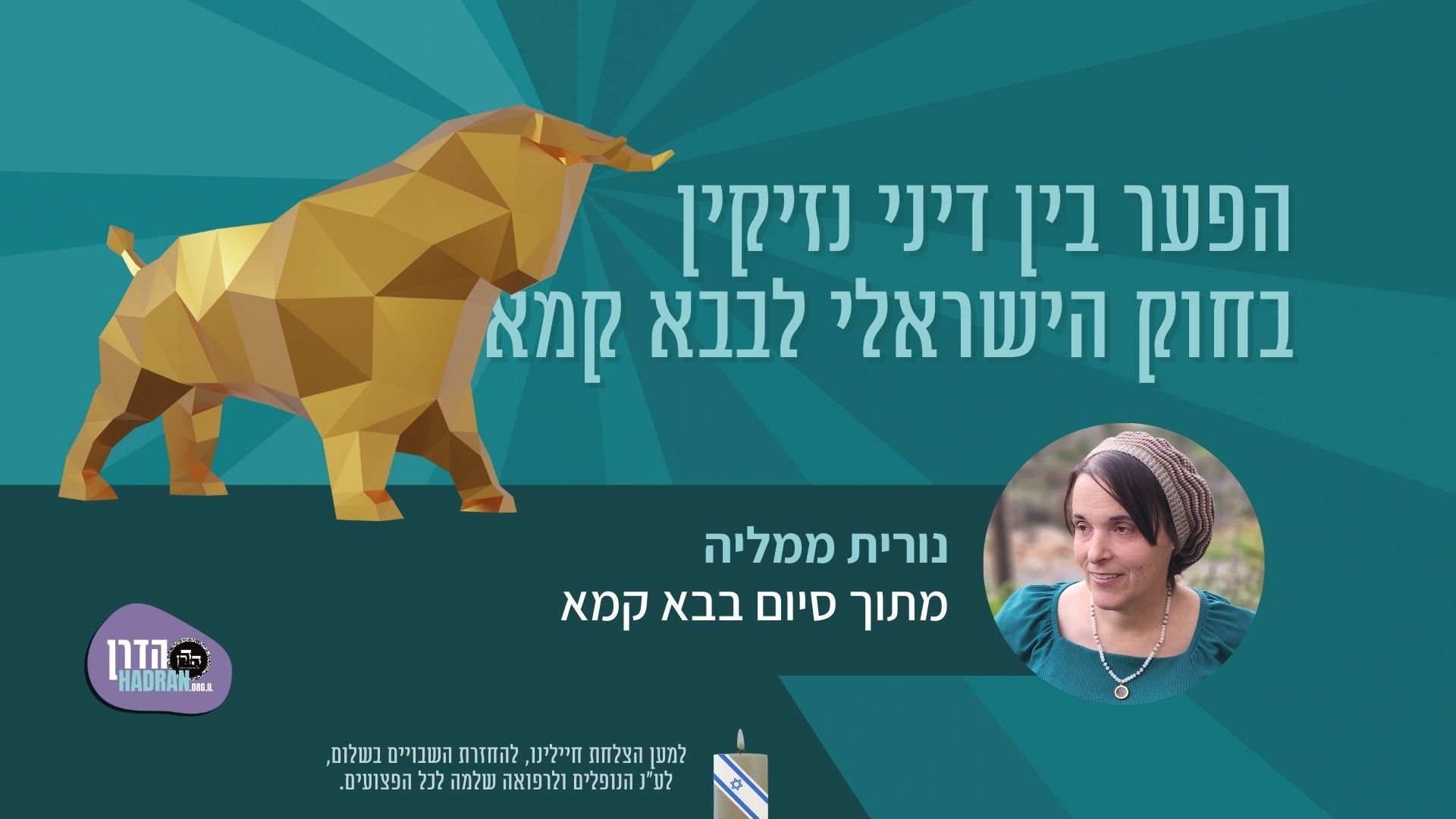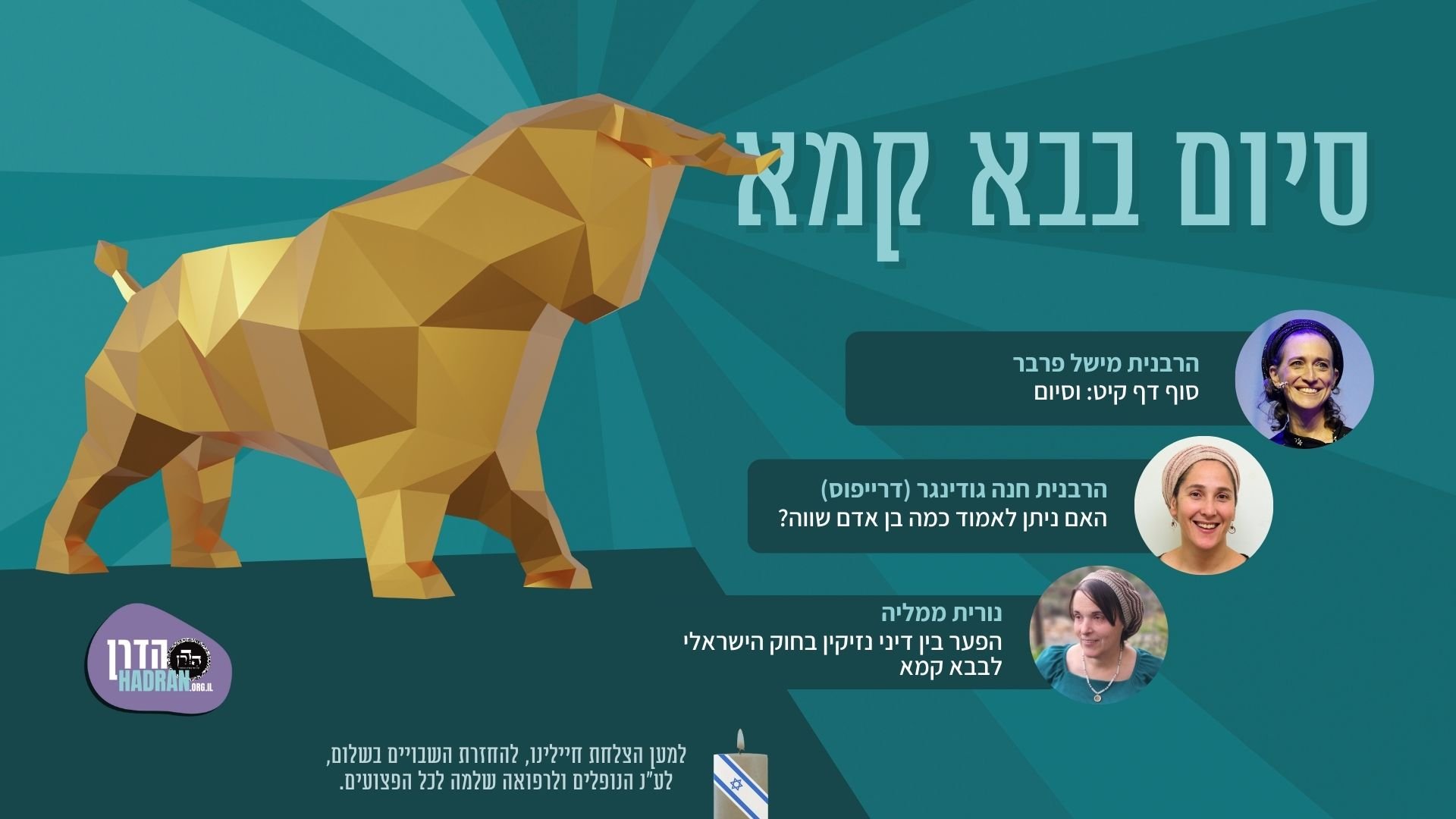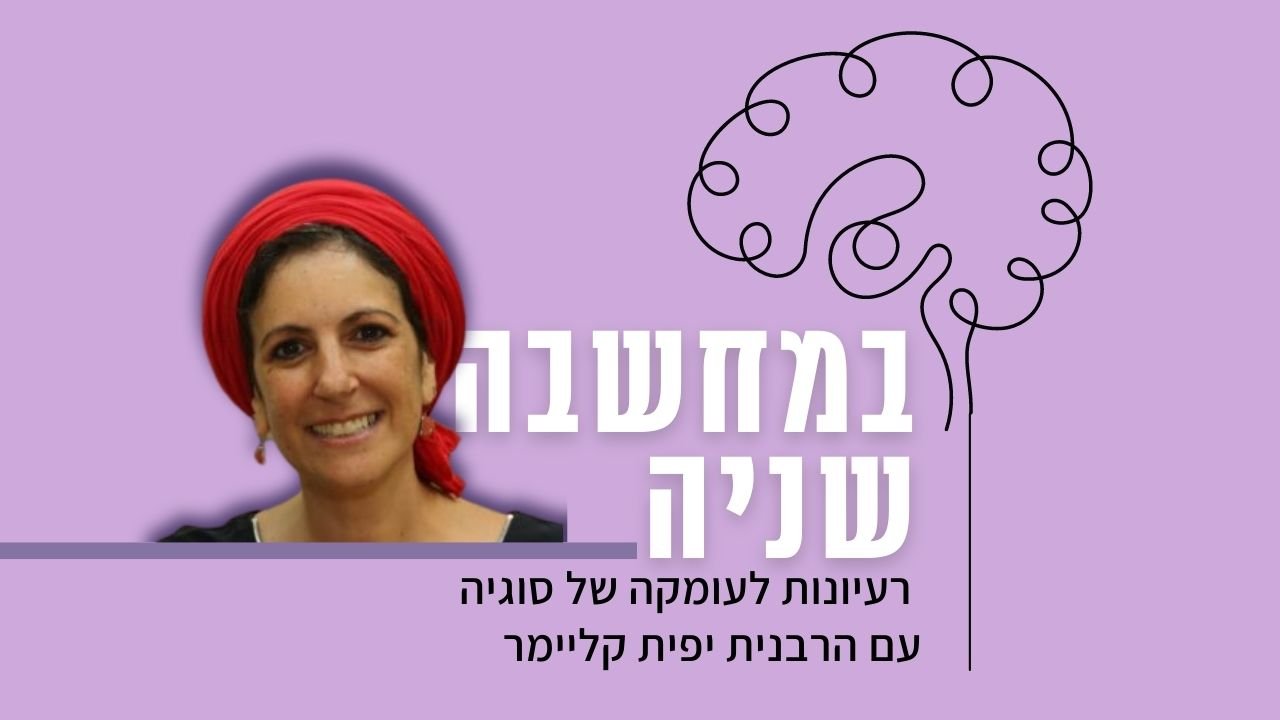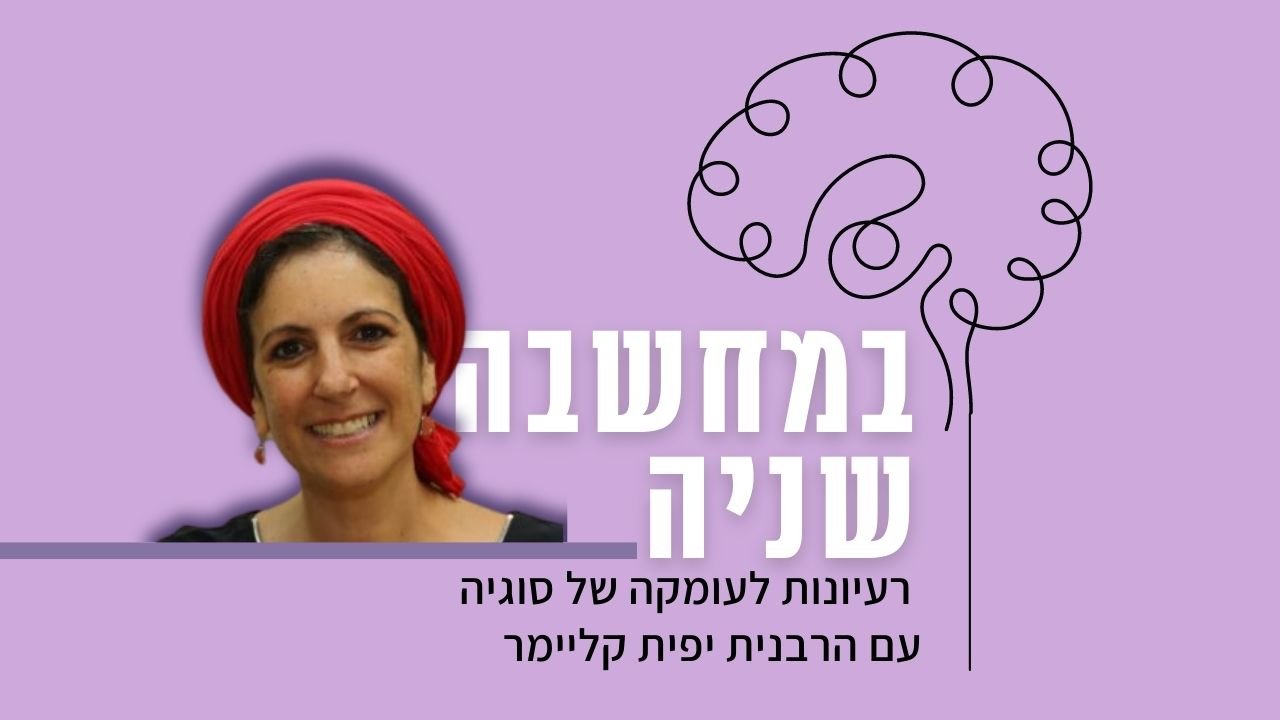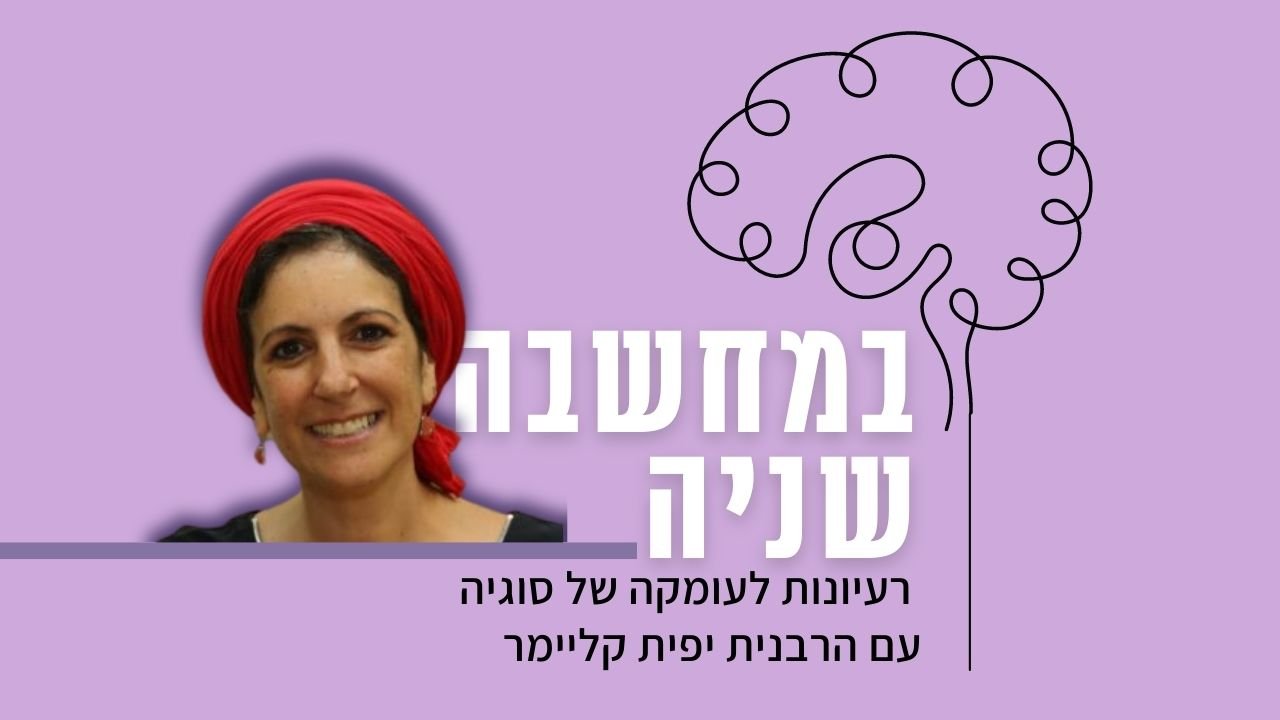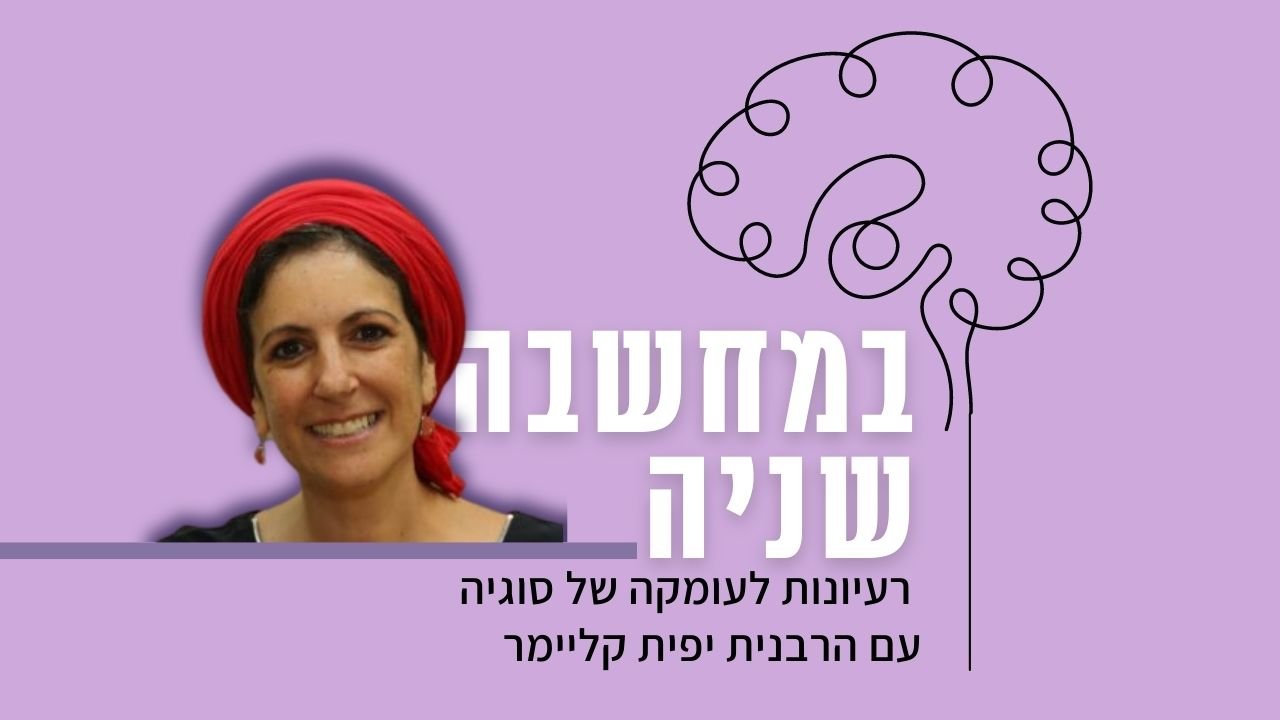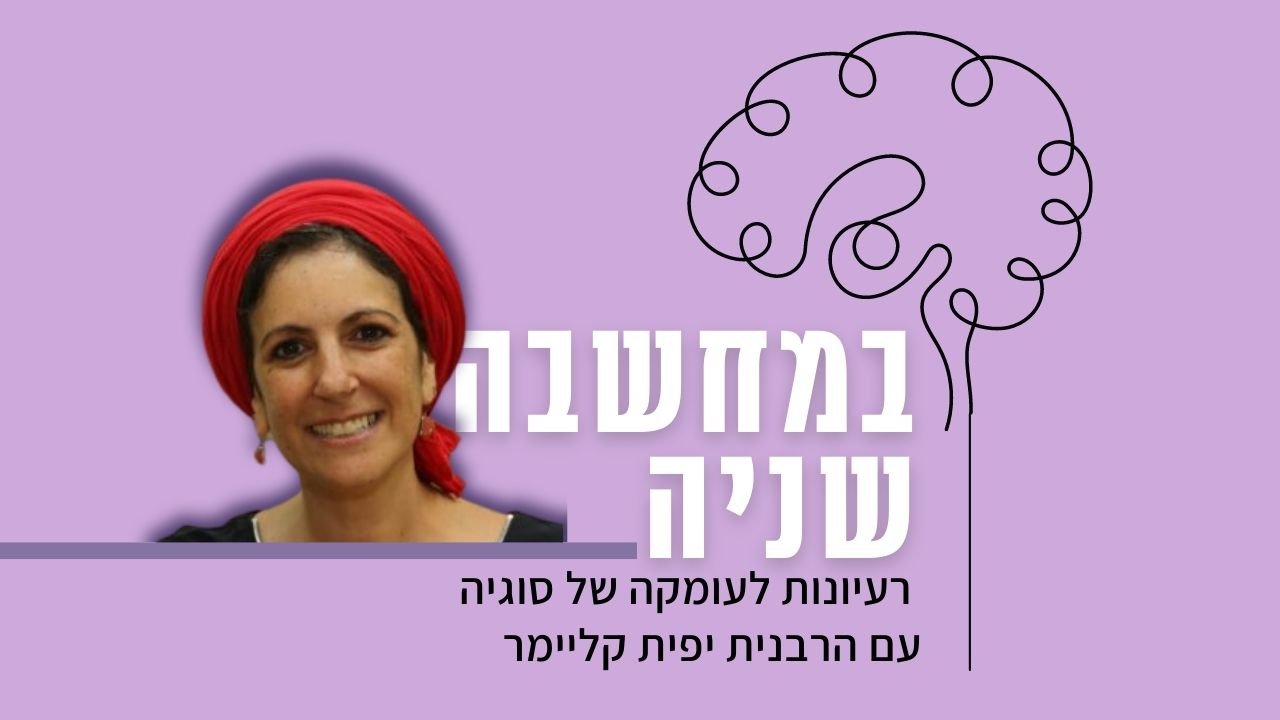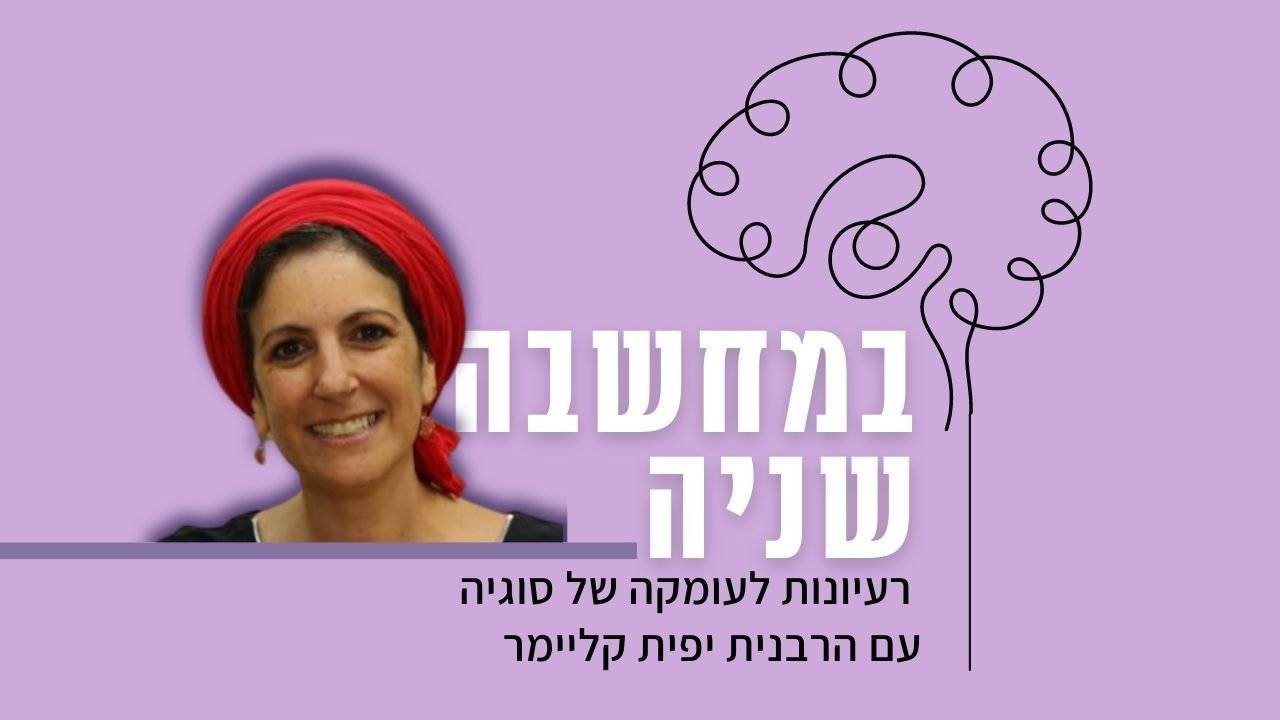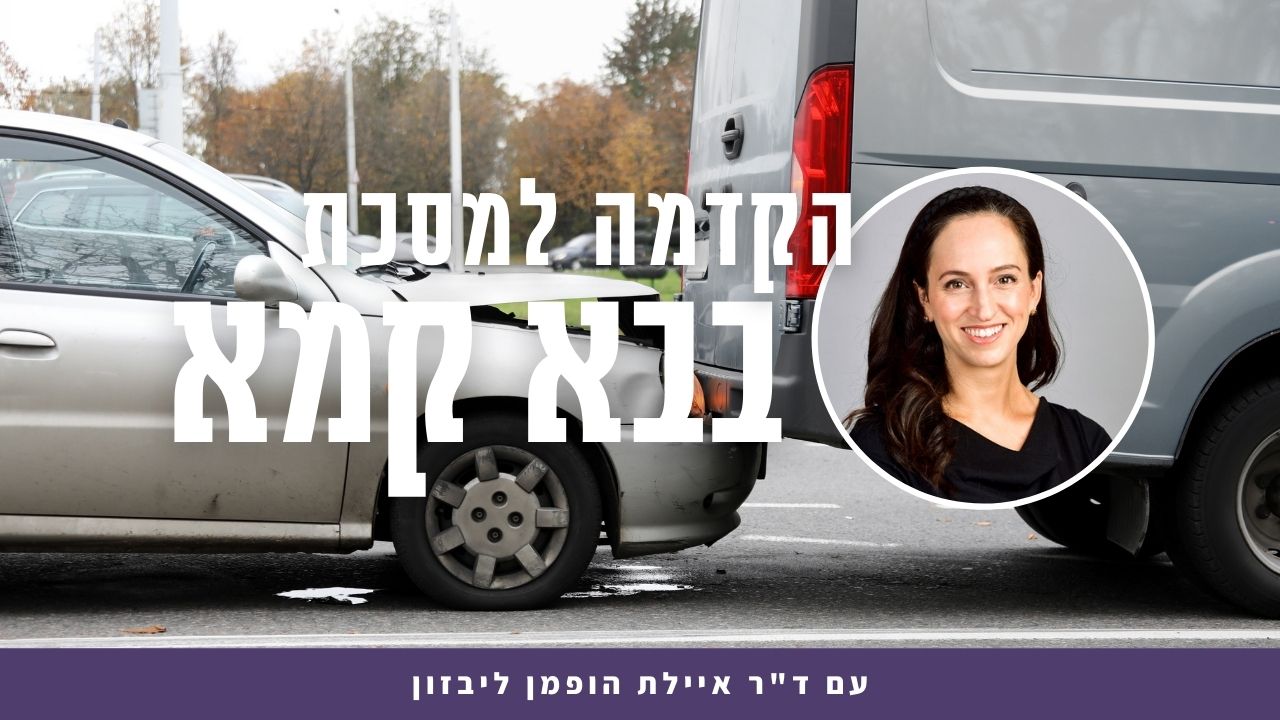בבא קמא כז
פְּטוּרִין. רַבִּי יְהוּדָה בֶּן בְּתֵירָא אוֹמֵר: בְּזֶה אַחַר זֶה – הָאַחֲרוֹן חַיָּיב, מִפְּנֵי שֶׁקֵּירַב מִיתָתוֹ.
exempt, as it is impossible to sentence any one of them to death since no one person killed the victim and there is no death penalty for partially killing a person. Rabbi Yehuda ben Beteira says: If they beat him sequentially the last one to beat him is liable for the death of the victim, because he brought the victim’s death closer. So too, in this case, although the first one threw the child, the one to impale him on his sword was the one to hasten his death, and therefore according to Rabbi Yehuda ben Beteira he would be liable to receive the death penalty.
בָּא שׁוֹר וְקִבְּלוֹ בְּקַרְנָיו – פְּלוּגְתָּא דְּרַבִּי יִשְׁמָעֵאל בְּנוֹ שֶׁל יוֹחָנָן בֶּן בְּרוֹקָא וְרַבָּנַן, דְּתַנְיָא: ״וְנָתַן פִּדְיֹן נַפְשׁוֹ״ – דְּמֵי נִיזָּק. רַבִּי יִשְׁמָעֵאל בְּנוֹ שֶׁל רַבִּי יוֹחָנָן בֶּן בְּרוֹקָא אוֹמֵר: דְּמֵי מַזִּיק.
The Gemara discusses a similar scenario: If one threw a child from a roof and a forewarned ox came along and impaled the child on its horns and the child died, the question of whether or not the owner of the ox is liable to pay ransom is dependent upon the dispute between Rabbi Yishmael, son of Rabbi Yoḥanan ben Beroka, and the Rabbis. As it is taught in a baraita: The verse: “He shall give for the redemption of his life” (Exodus 21:30), indicates that he must pay the value of the injured party, i.e., the one who was killed. Rabbi Yishmael, son of Rabbi Yoḥanan ben Beroka, says: He must pay the value of the one responsible for the damage. Since the child that was thrown off the roof had no monetary value at the time he was gored by the ox, as it was as if he were already dead, the Rabbis would exempt the owner of the ox from paying ransom. According to Rabbi Yishmael, son of Rabbi Yoḥanan ben Beroka, the owner of the ox must pay his own value to the family of the victim.
וְאָמַר רַבָּה: נָפַל מֵרֹאשׁ הַגָּג וְנִתְקַע בְּאִשָּׁה – חַיָּיב בְּאַרְבָּעָה דְּבָרִים. וּבִיבִמְתּוֹ – לֹא קָנָה.
§ Rabba says another similar halakha: If a man fell from a roof and while falling was inserted into a woman due to the force of the fall, but he did not have the intention to engage in sexual intercourse, he is liable to pay the four types of indemnity. And if this woman was his yevama waiting for him to perform levirate marriage, he has not acquired her as his wife through this act of intercourse. This is true even though a levirate marriage is ordinarily effected through sexual intercourse, even if unintentional, i.e., if he thought she was someone else. Nevertheless, since in this case he did not intend to engage in intercourse at all, the levirate marriage is not effected.
חַיָּיב בְּנֶזֶק, בְּצַעַר, בְּרִיפּוּי, בְּשֶׁבֶת. אֲבָל בּשֶׁת – לָא, דִּתְנַן: אֵינוֹ חַיָּיב עַל הַבֹּשֶׁת עַד שֶׁיְּהֵא מִתְכַּוֵּין.
The Gemara explains: What are the four types of indemnity that he is liable to pay? He is liable to pay for the damage, for the pain, for the medical costs, and for the loss of livelihood. But he is not liable to pay compensation for humiliation, as we learned in a mishna (86a): One is not liable to pay compensation for humiliation unless he intends to humiliate the injured party, and that was certainly not the case in this situation.
וְאָמַר רַבָּה: נָפַל מֵרֹאשׁ הַגָּג בְּרוּחַ שֶׁאֵינָהּ מְצוּיָה, וְהִזִּיק וּבִיֵּישׁ – חַיָּיב עַל הַנֶּזֶק, וּפָטוּר בְּאַרְבָּעָה דְּבָרִים. בְּרוּחַ מְצוּיָה, וְהִזִּיק וּבִיֵּישׁ – חַיָּיב בְּאַרְבָּעָה דְּבָרִים, וּפָטוּר עַל הַבֹּשֶׁת. וְאִם נִתְהַפֵּךְ – חַיָּיב אַף עַל הַבֹּשֶׁת.
And Rabba says another, similar halakha: If one fell from a roof due to an atypical wind, such that it could not have been anticipated in advance that he would fall, and while falling he caused damage and humiliated the injured party, he is liable for the damage but exempt from paying the four types of indemnity, as he did not intend to fall. If he fell due to a typical wind and caused damage and humiliated the injured party while falling, he is liable to pay the four types of indemnity, as his fall was caused by negligence. But he is nevertheless exempt from paying compensation for humiliation, as he did not intend to fall. But if he tumbled while falling so he could fall on this person in order to protect himself from the impact with the ground, he is liable to pay compensation for humiliation as well, because although he did not intend to cause shame he did intend to land on the person.
דְּתַנְיָא: מִמַּשְׁמָע שֶׁנֶּאֱמַר ״וְשָׁלְחָה יָדָהּ״ – אֵינִי יוֹדֵעַ שֶׁהֶחֱזִיקָה?! מָה תַּלְמוּד לוֹמַר ״וְהֶחֱזִיקָה״? לוֹמַר לְךָ: כֵּיוָן שֶׁנִּתְכַּוֵּין לְהַזִּיק – אַף עַל פִּי שֶׁלֹּא נִתְכַּוֵּין לְבַיֵּישׁ.
The halakha that one is exempt from paying compensation for humiliation unless he intended to strike his victim is as it is taught in a baraita: From the fact that it is stated: “And she extended her hand” (Deuteronomy 25:11), do I not know that she took hold of something? Consequently, what is the meaning when further on in the verse it states: “And she took him by his genitals”? It is to teach you that one who intends to cause damage, even if he does not intend to humiliate the injured party, is nevertheless liable to pay compensation for humiliation.
וְאָמַר רַבָּה: הִנִּיחַ לוֹ גַּחֶלֶת עַל לִבּוֹ, וָמֵת – פָּטוּר. עַל בִּגְדּוֹ, וְנִשְׂרַף – חַיָּיב.
And Rabba says: If one placed a hot coal over another’s heart and the latter was burnt and died, the one who placed the coal is exempt because the victim should have removed the coal from himself, and the one who placed it there did not need to assume that the victim might not remove it. If he placed the coal on the other’s garment and the garment was burnt, he is liable to pay for the damage, as it is possible that the one whose garment was burnt thought to sue the one who placed the coal on his clothes for the cost of the garment, and that is why he did not bother to remove it.
אָמַר רָבָא: תַּרְוַיְיהוּ תְּנַנְהִי. עַל לִבּוֹ – דִּתְנַן: כָּבַשׁ עָלָיו לְתוֹךְ הָאוּר אוֹ לְתוֹךְ הַמַּיִם, וְאֵינוֹ יָכוֹל לַעֲלוֹת מִשָּׁם, וָמֵת – חַיָּיב. דְּחָפוֹ לְתוֹךְ הָאוּר אוֹ לְתוֹךְ הַמַּיִם, וְיָכוֹל לַעֲלוֹת מִשָּׁם, וָמֵת – פָּטוּר.
Rava said: We have learned both of these rulings through intimation in mishnayot elsewhere. With regard to the case of the coal placed over his heart, the halakha is as we learned in a mishna (Sanhedrin 76b): If one held another in a fire or in water, and the victim is unable to extricate himself from there and he dies as a result, the one who attacked him is liable to receive the death penalty as a murderer. If he pushed him into fire or into the water, and the victim is able to extricate himself from there but he dies anyway, the one who attacked him is exempt from the death penalty. The case of one who places a coal on another’s chest is similar to the one where he pushes the victim into the fire or the water in a situation where the victim has the ability to escape.
בִּגְדּוֹ – דִּתְנַן: ״קְרַע אֶת כְּסוּתִי״, ״שַׁבֵּר אֶת כַּדִּי״ – חַיָּיב. ״עַל מְנָת לִפְטוֹר״ – פָּטוּר.
With regard to the case of one who placed a coal on the garment of another, it is as we learned in a mishna (92a): If one said to another: Tear my garment, or: Break my jug, and the other person does so, the latter is liable for the damage. But if one said to another: Tear my garment on the condition that you will be exempt from all liability, he is exempt. It is therefore clear that even when one is granted permission by the owner of an item to damage it, that does not grant him an exemption from liability for the damage caused unless that exemption was stated explicitly. Consequently, in a case where the owner did not grant permission, the one who caused the damage is certainly liable.
בָּעֵי רַבָּה: הִנִּיחַ גַּחֶלֶת עַל לֵב עַבְדּוֹ, מַהוּ? כְּגוּפוֹ דָּמֵי, אוֹ כְּמָמוֹנוֹ דָּמֵי? אִם תִּמְצָא לוֹמַר כְּגוּפוֹ דָּמֵי, שׁוֹרוֹ מַהוּ?
Rabba raises a dilemma in summation of this discussion: If he placed a coal over the heart of another’s Canaanite slave and the slave died as a result, what is the halakha? Is the body of the slave comparable to the body of any other person and therefore the assailant would be exempt from liability, or is it comparable to other property owned by the master and therefore the assailant would be liable? Furthermore, if you say that the body of the slave is comparable to the body of any ordinary person, as the slave had the ability to remove the coal from himself and therefore the assailant would be exempt, what is the halakha in a case where he placed the coal on the other’s ox?
הֲדַר פַּשְׁטַהּ: עַבְדּוֹ כְּגוּפוֹ, שׁוֹרוֹ כְּמָמוֹנוֹ.
After raising the dilemma Rabba then resolves it: The body of the slave is comparable to the body of any other person, as the slave possesses an intellect and should have the sense to remove the coal from himself, whereas the ox is comparable to other property.
הֲדַרַן עֲלָךְ כֵּיצַד הָרֶגֶל
מַתְנִי׳ הַמַּנִּיחַ אֶת הַכַּד בִּרְשׁוּת הָרַבִּים, וּבָא אַחֵר וְנִתְקַל בָּהּ וּשְׁבָרָהּ – פָּטוּר. וְאִם הוּזַּק בָּהּ – בַּעַל הֶחָבִית חַיָּיב בְּנִזְקוֹ.
MISHNA: In the case of one who places a kad, a type of vessel, in the public domain and another person comes and stumbles on it and breaks it, the other person is exempt from paying for what he broke. And if the one who stumbled incurred damage by it, the owner of the ḥavit, a type of vessel, is liable to pay restitution for his damage.
גְּמָ׳ פָּתַח בְּכַד, וְסִיֵּים בְּחָבִית!
GEMARA: The mishna began its presentation of the case in reference to a kad, stating: In the case of one who places a kad, and ended it in reference to a ḥavit, stating: The owner of the ḥavit is liable.
וּתְנַן נָמֵי: זֶה בָּא בְּחָבִיתוֹ וְזֶה בָּא בְּקוֹרָתוֹ, נִשְׁבְּרָה כַּדּוֹ שֶׁל זֶה בְּקוֹרָתוֹ שֶׁל זֶה – פָּטוּר. פָּתַח בְּחָבִית, וְסִיֵּים בְּכַד!
And we learned this interchanging of the words kad and ḥavit in a mishna (31b) as well: If two people were walking down the street, this one coming with his ḥavit and that one coming with his cross beam, and this one’s kad was broken by that one’s cross beam, the one holding the beam is exempt. Here too the mishna changed its wording, as it began its statement in reference to a ḥavit and ended it in reference to a kad.
וּתְנַן נָמֵי: זֶה בָּא בְּחָבִיתוֹ שֶׁל יַיִן, וְזֶה בָּא בְּכַדּוֹ שֶׁל דְּבַשׁ; נִסְדְּקָה חָבִית שֶׁל דְּבַשׁ, וְשָׁפַךְ זֶה יֵינוֹ וְהִצִּיל אֶת הַדְּבַשׁ לְתוֹכוֹ – אֵין לוֹ אֶלָּא שְׂכָרוֹ. פָּתַח בְּכַד, וְסִיֵּים בְּחָבִית!
And we learned this in another mishna (115a) as well: If this person came with his ḥavit of wine and that person came with his kad of honey, and the ḥavit of honey, which is more valuable, cracked, and this person poured out his wine and saved the honey by collecting it into his vessel, he receives reimbursement only for his trouble, and he cannot claim the value of the wine that he poured out since the owner of the honey did not tell him to do so. Here too the mishna changed its wording, as it began its statement in reference to a kad of honey and ended it in reference to a ḥavit of honey.
אָמַר רַב פָּפָּא: הַיְינוּ כַּד – הַיְינוּ חָבִית. לְמַאי נָפְקָא מִינַּהּ? לְמִקָּח וּמִמְכָּר.
Rav Pappa said: These examples show that a kad is the same as a ḥavit, and the two words are used interchangeably. With regard to what does this make a difference? This makes a difference for buying and selling. If a customer asks for a ḥavit, intending a large vessel, and the seller gives him a kad, which is a smaller vessel, the buyer cannot claim that he did not receive the item he asked for.
הֵיכִי דָמֵי? אִילֵּימָא בְּאַתְרָא דְּכַדָּא לָא קָרוּ ״חָבִית״, וְחָבִית לָא קָרוּ ״כַּדָּא״; הָא לָא קָרוּ לַהּ!
The Gemara asks: What are the circumstances where this is relevant? If we say that it is with regard to a locale where people do not refer to a kad as a ḥavit, nor do they refer to a ḥavit as a kad, and a ḥavit is understood to be referring to a larger vessel, clearly one who asks for a ḥavit does not wish to buy a kad, as people do not call it that.
לָא צְרִיכָא, דְּרוּבָּא קָרוּ לַהּ לְכַדָּא ״כַּדָּא״ וּלְחָבִיתָא ״חָבִיתָא״, וְאִיכָּא נָמֵי דְּקָרוּ לְחָבִיתָא ״כַּדָּא״ וּלְכַדָּא ״חָבִיתָא״; מַהוּ דְּתֵימָא: זִיל בָּתַר רוּבָּא,
The Gemara answers: No, it is necessary to teach that they are equivalent terms with regard to a locale where most people call a kad a kad and a ḥavit a ḥavit, i.e., most people use the term kad for the smaller vessel and the term ḥavit for the larger one, and there are also those who call a ḥavit a kad and a kad a ḥavit, not distinguishing between the two terms. Lest you say that the halakha follows the majority and the seller and the buyer must accept this distinction,
קָא מַשְׁמַע לַן דְּאֵין הוֹלְכִין בְּמָמוֹן אַחַר הָרוֹב.
the mishna teaches us that the court does not follow the majority with regard to monetary matters, and in cases of uncertainty the burden of proof rests upon the claimant.
וּבָא אַחֵר וְנִתְקַל בָּהּ וּשְׁבָרָהּ – פָּטוּר. אַמַּאי פָּטוּר? אִיבְּעִי לֵיהּ לְעַיּוֹנֵי וּמֵיזַל!
§ The mishna teaches concerning the vessel placed in the public domain: If another person came and stumbled on it and broke it, he is exempt. The Gemara asks: Why is he exempt? Although this happened in the public domain, he should examine the road and then continue walking.
אָמְרִי דְּבֵי רַב מִשְּׁמֵיהּ דְּרַב: בִּמְמַלֵּא רְשׁוּת הָרַבִּים כּוּלָּהּ חָבִיּוֹת. שְׁמוּאֵל אָמַר: בַּאֲפֵילָה שָׁנוּ. רַבִּי יוֹחָנָן אָמַר: בְּקֶרֶן זָוִית.
The Sages of the school of Rav said in the name of Rav: The ruling of the mishna is taught with regard to one who placed not just one barrel in the road, but rather filled the entire public domain with barrels, blocking the path. Since the public domain belongs to everyone, a pedestrian is entitled to traverse the road even if it necessitates breaking the vessels. Shmuel says: The ruling of the mishna is taught with regard to a case where he broke it in the dark. Therefore, he could not have avoided breaking the barrel by examining the road in front of him. Rabbi Yoḥanan says: The ruling of the mishna is taught with regard to a case where the barrel was placed at the corner of the road, and so the pedestrian could not have seen it, as he rounded the corner, before stumbling on it.
אָמַר רַב פָּפָּא: לָא דַּיְקָא מַתְנִיתִין אֶלָּא אוֹ כִּשְׁמוּאֵל, אוֹ כְּרַבִּי יוֹחָנָן. דְּאִי כְּרַב, מַאי אִרְיָא נִתְקַל? אֲפִילּוּ שָׁבַר נָמֵי!
Rav Pappa said: The mishna is precise only according to either the explanation of Shmuel or that of Rabbi Yoḥanan, but not that of Rav. As, if the mishna is explained in accordance with the explanation of Rav, what is the reason it refers specifically to a case where one stumbled on the barrel? Even if he broke the barrel intentionally he should not be liable to pay, as the owner of the barrel had no right to block the public road.
אָמַר רַב זְבִיד מִשְּׁמֵיהּ דְּרָבָא: הוּא הַדִּין דַּאֲפִילּוּ שָׁבַר; וְהַאי דְּקָתָנֵי ״נִתְקַל״ – אַיְּידֵי דְּבָעֵי לְמִתְנֵי סֵיפָא: ״וְאִם הוּזַּק בָּהּ – בַּעַל חָבִית חַיָּיב בְּנִזְקוֹ״, דְּדַוְקָא נִתְקַל, אֲבָל שָׁבַר – לָא, מַאי טַעְמָא? הוּא דְּאַזֵּיק אַנַּפְשֵׁיהּ; קָתָנֵי רֵישָׁא ״נִתְקַל״.
Rav Zevid said in the name of Rava in defense of Rav’s explanation: The same is true even if he broke the barrel intentionally. And as for this fact, that the tanna of the mishna teaches a case where he stumbled, it is because he wants to teach in the last clause: And if he incurred damage due to the vessel, the owner of the ḥavit is liable to pay for his damage. As this ruling applies specifically when he stumbled, but if he broke the barrel intentionally and incurred damage in the process, the owner of the barrel is not required to compensate him. What is the reason for this? Although the pedestrian had the right to break the barrel, it is he who damaged himself, by not being careful while breaking it. Therefore, in the first clause the mishna teaches a case where he stumbled. Accordingly, the mishna’s wording is precise according to Rav’s explanation as well.
אֲמַר לֵיהּ רַבִּי אַבָּא לְרַב אָשֵׁי, הָכִי אָמְרִי בְּמַעְרְבָא מִשְּׁמֵיהּ דְּרַבִּי עוּלָּא: לְפִי שֶׁאֵין דַּרְכָּן שֶׁל בְּנֵי אָדָם לְהִתְבּוֹנֵן בַּדְּרָכִים.
Rabbi Abba said to Rav Ashi that this is what they say in the West, Eretz Yisrael, in the name of Rabbi Ulla, in explanation of the mishna: Even if the barrel is clearly visible, one who stumbles on it is exempt from liability because the typical manner of people is not to examine the roads, as they assume that the road is unobstructed. Therefore, one who breaks an item placed in the road as a result of not watching is not liable to pay restitution.
הֲוָה עוֹבָדָא בִּנְהַרְדְּעָא, וְחַיֵּיב שְׁמוּאֵל. בְּפוּמְבְּדִיתָא, וְחַיֵּיב רָבָא.
The Gemara relates: There was an incident in Neharde’a where a pedestrian stumbled on a jug in an open area and broke it, and Shmuel deemed him liable to pay for the damage. A similar incident took place in Pumbedita, and Rava deemed the person liable to pay.
בִּשְׁלָמָא שְׁמוּאֵל – כִּשְׁמַעְתֵּיהּ. אֶלָּא רָבָא – לֵימָא כִּשְׁמוּאֵל סְבִירָא לֵיהּ?
The Gemara asks: Granted, Shmuel ruled in accordance with his halakhic opinion that the exemption stated in the mishna refers specifically to a case where one stumbles in the dark, as otherwise he is liable for breaking the barrel, since he should have examined the road. But with regard to Rava, shall we say that he holds in accordance with Shmuel’s opinion that one who breaks an item in the public domain is exempt from paying for it only if it was dark?
אָמַר רַב פָּפָּא: קַרְנָא דְּעַצְרָא הָוֵי, דְּכֵיוָן דְּבִרְשׁוּת קָעָבְדִי – אִיבְּעִי לֵיהּ לְעַיּוֹנֵי וּמֵיזַל.
Rav Pappa said: That inference is not necessary, as this incident was at the corner where there was an olive press [de’atzera], where it is known that people put their jugs down while waiting for oil. Consequently, since they were acting with permission, a pedestrian should examine the road and then continue walking.
שְׁלַח לֵיהּ רַב חִסְדָּא לְרַב נַחְמָן, הֲרֵי אָמְרוּ: לִרְכוּבָּה – שָׁלֹשׁ, וְלִבְעִיטָה – חָמֵשׁ, וְלִסְנוֹקֶרֶת – שְׁלֹשׁ עֶשְׂרֵה. לְפַנְדָּא דְמָרָא וּלְקוֹפִינָא דְּמָרָא, מַאי?
§ Rav Ḥisda sent the following question to Rav Naḥman: The Sages said that when one strikes another, humiliating him, the judges determine liability according to the following formula: For kneeing [rekhuva] him, he must pay three sela; for kicking, five; and for punching [velisnokeret] him, thirteen. The Gemara asks: If so for hitting him with the handle of a hoe [demara] and for hitting him with the top [ulkofina] of a hoe, what amount is one liable to pay him?
שְׁלַח לֵיהּ: חִסְדָּא חִסְדָּא, קְנָסָא קָא מַגְבֵּית בְּבָבֶל? אֵימָא לִי גּוּפָא דְעוֹבָדָא הֵיכִי הֲוָה.
Rav Naḥman sent him the following response: Ḥisda, Ḥisda, are you collecting a fine for humiliation in Babylonia, where judges are not authorized to collect fines? Tell me how the incident itself transpired.
שְׁלַח לֵיהּ: דְּהָהוּא גַּרְגּוּתָא דְּבֵי תְרֵי, דְּכׇל יוֹמָא הֲוָה דָּלֵי חַד מִנַּיְיהוּ. אֲתָא חַד, קָא דָלֵי בְּיוֹמָא דְּלָא דִּילֵיהּ. אֲמַר לֵיהּ: יוֹמָא דִּידִי הוּא! לָא אַשְׁגַּח בֵּיהּ. שְׁקַל פַּנְדָּא דְּמָרָא, מַחְיֵיהּ.
Rav Ḥisda sent him in response: There is a certain cistern belonging to two people whose arrangement was to alternate its use so that every day one of them would draw from it in turn. It happened that one of them came and was drawing water on a day that was not his turn. His co-owner said to him: This is my day to draw, not yours. His colleague did not pay attention to him. The person whose turn it was therefore took the handle of a hoe and struck the person who was stealing his water, who then sued for damages.
אֲמַר לֵיהּ: מְאָה פַּנְדֵי בְּפַנְדָּא לִמְחֲיֵיהּ! אֲפִילּוּ לְמַאן דְּאָמַר: לָא עָבֵיד אִינִישׁ דִּינָא לְנַפְשֵׁיהּ; בִּמְקוֹם פְּסֵידָא – עָבֵיד אִינִישׁ דִּינָא לְנַפְשֵׁיהּ.
Rav Naḥman said to him: In that case, he was right to do so, and he should have hit him even a hundred times with the hoe. Even according to the one who says that a person may not take justice into his own hands but should go to court, in a case where there would be a loss involved if no immediate action is taken, a person may take justice into his own hands.
דְּאִתְּמַר, רַב יְהוּדָה אָמַר: לָא עָבֵיד אִינִישׁ דִּינָא לְנַפְשֵׁיהּ. רַב נַחְמָן אָמַר: עָבֵיד אִינִישׁ דִּינָא לְנַפְשֵׁיהּ.
This is as it was stated, that Rav Yehuda says: A person may not take justice into his own hands, whereas Rav Naḥman says: A person may take justice into his own hands.
הֵיכָא דְּאִיכָּא פְּסֵידָא – כּוּלֵּי עָלְמָא לָא פְּלִיגִי, דְּעָבֵיד אִינִישׁ דִּינָא לְנַפְשֵׁיהּ. כִּי פְּלִיגִי – הֵיכָא דְּלֵיכָּא פְּסֵידָא; רַב יְהוּדָה אָמַר: לָא עָבֵיד אִינִישׁ דִּינָא לְנַפְשֵׁיהּ, דְּכֵיוָן דְּלֵיכָּא פְּסֵידָא – לֵיזִיל קַמֵּיהּ דַּיָּינָא. רַב נַחְמָן אָמַר: עָבֵיד אִינִישׁ דִּינָא לְנַפְשֵׁיהּ, דְּכֵיוָן דִּבְדִין עָבֵיד – לָא טָרַח.
Where there is an imminent loss that will be suffered if the injured party does not take action, everyone agrees that a person may take justice into his own hands. They disagree only when there is no imminent loss that will be suffered. Rav Yehuda says that a person may not take justice into his own hands, because since there is no loss, he should go before the judge to have him enforce the law. Rav Naḥman says that a person may take justice into his own hands. Since he is acting lawfully, as he is clearly in the right, he need not trouble himself to go before the judge to have him enforce the law.
מֵתִיב רַב כָּהֲנָא, בֶּן בַּג בַּג אוֹמֵר: אַל תִּיכָּנֵס לַחֲצַר חֲבֵרְךָ לִיטּוֹל אֶת שֶׁלְּךָ שֶׁלֹּא בִּרְשׁוּת, שֶׁמָּא תֵּרָאֶה עָלָיו כְּגַנָּב. אֶלָּא שְׁבוֹר אֶת שִׁינָּיו, וֶאֱמוֹר לוֹ: שֶׁלִּי אֲנִי נוֹטֵל.
Rav Kahana raises an objection to Rav Yehuda’s opinion based on a baraita: Ben Bag Bag says: Do not enter another person’s courtyard secretly to take what is rightfully yours without permission, lest you appear to him as a thief trying to steal his property. Rather, break his teeth, i.e., take it by force, and say to him: I am taking what is mine. Evidently one may take justice into his own hands.
אֲמַר לֵיהּ:
Rav Yehuda said to him:

